Best First Credit Cards for Young Adults
About Trevor
Trevor Mahoney is a financial services writer and content creator based out of Los Angeles, California. He holds a Bachelors of Science in Finance from Santa Clara University. In his free time, he enjoys hiking and lounging on the beach.
Read full bio
At a Glance
As a young adult, one of the first major financial steps you will take is applying for your very own credit card in your name. However, with a limited credit history, you certainly won’t be offered prestigious cards off the bat such as the Amex Centurion card. Knowing which credit cards are most suitable for young adults can help reduce your odds of getting an application rejected and help you on your way to developing a strong financial history.
In this article, you’ll learn:
Comparing the top credit cards for young adults
In looking at the best credit cards for young adults, there are truly a myriad of options to consider. The following table outlines the most beneficial cards, though, and their most notable benefits from a 30,000-foot overview standpoint:
| Credit Card |
Rewards Rate |
Welcome Offer |
|---|---|---|
Wells Fargo Autograph Card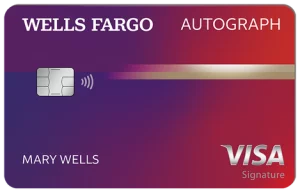 |
Earn unlimited 3x points on dining, travel, gas, transit, streaming services, and phone plans. Earn 1x points on everything else. | Earn 20,000 bonus points after spending $1,000 on the card within the first three months from account opening. |
Capital One SavorOne Cash Rewards Card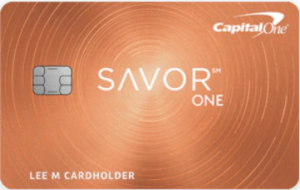 |
Earn unlimited 3% cash back on dining, entertainment, popular streaming services, 1% cash back on all other purchases. As a bonus, earn 8% cash back on Capital One Entertainment purchases and an unlimited 5% cash back on hotels and rental cars. | Earn $200 in cash back after spending $500 on the card within the first three months from account opening. |
Wells Fargo Active Cash Card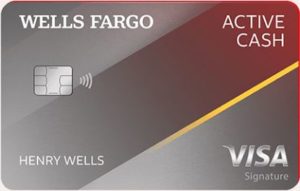 |
Earn unlimited 2% cash back on all purchases | Earn $200 in cash back after spending $500 on the card within the first three months from account opening |
Chase Freedom Flex Card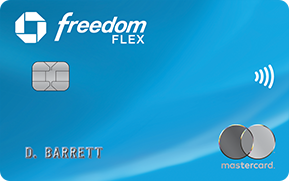 |
Earn 5% cash back in a category of your choice on up to $1,500 in purchases per quarter (rotating quarterly), 5% on Chase Travel, 3% on dining and drugstore purchases, and 1% on all other purchases. | Earn $200 in cash back after spending $500 on the card within the first three months from account opening. |
Blue Cash Preferred Card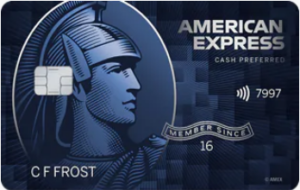 |
Earn 6% cash back at supermarkets on up to $6,000 in a year then 1% thereafter. Earn 6% cash back on select streaming services, 3% cash back at gas stations and transit, as well as 1% cash back on all other purchases. | Earn $250 in statement credits after spending $3,000 on the card within the first six months from account opening |
Petal 2 Visa Credit Card |
Earn 1% cash back on all purchases, with a potential bump to 1.25% after six months of on-time payments and 1.5% back after a year of consecutive payments. | N/A |
A closer look at the best credit cards for young adults
The above breakdown served as an excellent starting point for the best cash back credit cards for young adults but it was only that, a starting point. Below is a comprehensive breakdown of each of the aforementioned cards along with some of their important benefits and drawbacks:
Wells Fargo Autograph Card
Rewards Rate: Earn unlimited 3x points on dining, travel, gas, transit, streaming services, and phone plans. Earn 1x points on everything else.
Annual fee: $0
Intro APR: 0% intro APR for twelve months.
Regular APR: 20.24%, 25.24%, or 29.99% Variable.
Signup bonus: Earn 20,000 bonus points after spending $1,000 on the card within the first three months from account opening.
Our verdict: First and foremost, the Wells Fargo Autograph is an excellent candidate for the best first credit card for young adults. As one of the newest offerings by the bank, the Autograph gives a respectable 3x points on dining, travel, gas, and more which are all high-spend categories for young adults. Additionally, there is no annual fee and even a 0% introductory APR that lasts a full year, meaning any young adult can get used to using credit without worrying about interest.
Pros:
- No annual fee on the card.
- Introductory 0% APR period.
- Multiple different common rewards earnings categories.
- Large welcome bonus offered on the card.
Cons:
- The APR can get quite high if you don’t have a strong credit history.
Apply now: Wells Fargo Autograph℠ Card
Capital One SavorOne Cash Rewards Card
Rewards Rate: Earn unlimited 3% cash back on dining, entertainment, popular streaming servies, 1% cash back on all other purchases. As a bonus, earn 8% cash back on Capital One Entertainment purchases and an unlimited 5% cash back on hotels and rental cars.
Annual fee: $0
Intro APR: 0% intro APR on balance transfers and purchases for fifteen months.
Regular APR: 19.99%-29.99% Variable.
Signup bonus: Earn $200 in cash back after spending $500 on the card within the first three months from account opening.
Our verdict: Similar to the Wells Fargo Autograph card, the Capital One SavorOne Cash Rewards card provides holders with up to 3% back on dining, entertainment, and even streaming services. However, there is the added benefit of having the chance to earn up to 8% back so long as you make an entertainment purchase through the Capital One portal. The cost of holding this card is quite low with no annual fee and a 0% introductory APR, making this also one of the best first-time credit cards for young adults.
Pros:
- No annual fee.
- Introductory 0% APR period.
- Multiple rewards earnings categories.
Cons:
- Small welcome bonus as compared to other cards.
- The APR can climb quite high.
Apply now: Capital One SavorOne Cash Rewards Credit Card
Wells Fargo Active Cash
Rewards Rate: Earn unlimited 2% cash back on all purchases.
Annual fee: $0
Intro APR: 0% intro APR on balance transfers and purchases for fifteen months.
Regular APR: 20.24%, 25.24%, or 29.99% Variable.
Signup bonus: Earn $200 in cash back after spending $500 on the card within the first three months from account opening.
Our verdict: A second card offered by Wells Fargo is their Active Cash card, which was originally designed to be a card for students. This Active Cash card offers holders an unlimited 2% cash back regardless of what’s purchased, which is helpful for those who don’t want to think about which card to use when. The Active Cash also offers no annual fee and an introductory 0% APR period, making it cheap to hold just starting.
Pros:
- No annual fee on the card.
- Introductory 0% APR period.
- The welcome bonus is easy to achieve.
Cons:
- Rewards earning the amount of 2% is slightly low.
- The APR can climb quite high.
Apply now: Wells Fargo Active Cash Visa® Card
Chase Freedom Flex
Rewards Rate: Earn 5% cash back in a category of your choice on up to $1,500 in purchases per quarter (rotating quarterly), 5% on Chase Travel, 3% on dining and drugstore purchases, and 1% on all other purchases.
Annual fee: $0
Intro APR: 0% intro APR on balance transfers and purchases for fifteen months.
Regular APR: 20.49%-29.24% Variable.
Signup bonus: Earn $200 in cash back after spending $500 on the card within the first three months from account opening.
Our verdict: The Chase Freedom Flex card is a staple in the industry and serves as the answer to ‘What is the best first credit card for young adults?’ for many people. With a 5% cash back category of your choice which rotates quarterly, this card allows cardholders to earn hundreds of dollars over time. Additionally, there is 3% cash back offered on dining and drugstore purchases which are two more common spend categories for young adults in particular.
Pros:
- High percentage back in cash with categories that rotate quarterly.
- No annual fee to use the card.
- Introductory 0% APR period.
Cons:
- High regular APR for those with limited credit.
- Thinking about when to use the card for maximum benefit can be challenging for beginners.
Apply now: Chase Freedom Flex
Blue Cash Preferred
Rewards Rate: Earn 6% cash back at supermarkets on up to $6,000 in a year then 1% thereafter. Earn 6% cash back on select streaming services, 3% cash back at gas stations and transit, as well as 1% cash back on all other purchases.
Annual fee: $0 for the first year, $95 thereafter.
Intro APR: 0% intro APR for the first twelve months from account opening.
Regular APR: 19.24%-29.99% Variable.
Signup bonus: Earn $250 in statement credits after spending $3,000 on the card within the first six months from account opening.
Our verdict: Those who live as the ultimate combination of foodies and digital nuts should certainly consider the Blue Cash Preferred to be the best credit card for young adults building credit. A person can earn 6% back at supermarkets on up to $6,000 in a year in addition to 6% back on select streaming services. On top of this, they can also earn 3% back on gas and travel which is perfect for the young worker. All of this comes at the cheap cost of $95 per year, waived for the first year, during which there is also no APR.
Pros:
- 6% cash back is one of the highest earnings rates in the industry for credit cards.
- Introductory 0% APR period.
- The annual fee is waived for the first year.
Cons:
- Low welcome bonus offered despite high effort required to earn it.
- There is an annual fee on the card.
Apply now: Blue Cash Preferred
Petal 2 Visa Credit Card
Rewards Rate: Earn 1% cash back on all purchases, with a potential bump to 1.25% back after six months of on-time payments and 1.5% back after a year of consecutive payments.
Annual fee: $0
Intro APR: N/A
Regular APR: 18.24%-32.24% Variable
Signup bonus: N/A
Our verdict: When people consider the best airline credit card for young adults or the best credit card company for young adults, they often leave out the smaller players in the industry for no good reason. Petal is a newer company yet they offer one of the best credit cards for young adults in the form of their Petal 2 Visa Credit Card. Serving as a credit builder card, it has low requirements to be approved and will slowly increase your rewards percentage amount from 1% to 1.25% to 1.5% over a year with good credit habits. There is no annual fee to hold the card, though be aware that the APR can be quite high if you have poor credit.
Pros:
- No annual fee on the card.
- A steadily increasing rewards percentage back encourages positive credit habits.
Cons:
- The regular APR can be extremely high, meaning carrying a balance can be dangerous financially.
- There is no signup bonus offered for the card.
Apply now: Petal 2 Visa Credit Card
How to compare credit cards for young adults?
When a person is on the younger side and has a limited credit history, the credit cards on the table for them will be limited in terms of rewards. That’s why finding the perfect balance of high rewards, and low cost is so important. Therefore, when comparing the best first credit card for young adults’ options, look at the APR, as well as whether there is an intro APR. This will tell you the cost of owning the card if you carry balances over monthly.
In addition to this, look at the annual fee to see if there is another cost to add to the APR. Once you have calculated this total cost, look at the rewards or benefits the card offers and add them up to a monetary value in your mind. Ideally, that monetary or intrinsic value beats out the cost of owning the card.
Credit card tips for young adults
As a young adult, growing your financial history is important should you wish to make larger purchases in the future, such as for a home, boat, or something else. Therefore, looking at some of the top credit-building tips can help, with the most notable being:
Keep your balance low
First and foremost, you should target a 30% credit utilization ratio, if not lower. This means that, during a billing cycle, you never borrow more than 30% of your total credit limit. Therefore, a person who has a credit limit of $10,000 should limit their borrowing on that card to $3,000. In a perfect world, this utilization would go down to something closer to 10%.
Charge only what you can afford
Building off of the prior point, the second and another most helpful tip for building credit quickly as a young adult is to only put something on your credit card if you can afford it right then and there with your checking account. This will help to ensure you only put expenses on your card which you can pay off during that billing cycle, thus avoiding carrying over a balance and being forced to pay interest.
Methodology
A variety of factors were considered when evaluating which card was the best starter credit card for young adults, but the most important of those include:
- The annual fee associated with the credit card if there was one.
- The overall cost of owning the card, including the intro APR period, regular APR period, and any applicable fees associated with owning the card.
- The rewards categories the credit card offered and how applicable they were to young adults.
- The ease of being approved for the credit card with a limited credit history.
- The reputation of the credit card issuer.
The product information provided here is based on research conducted up to a specific date and may have changed. For the latest and most accurate information, we recommend you to visit the respective card’s website before proceeding.
FAQs
Generally, you must be at least 21 years old to apply for a standard credit card due to federal limitations on advertising financial products to those under that age. However, there are certain ways around this such as student cards which are designed for 18 to 21-year-olds. Alternatively, you can be added as an authorized user to a person’s current credit card to start building your credit while young. There are several different credit card options to consider as a young adult, but the easiest to get will be one that has limited credit requirements, if any at all, and limited rewards. Higher-end cards with all the bells and whistles tend to have strict requirements, along with high annual fees and are not meant for young adults just getting started with credit. Building credit is a marathon, not a sprint. It will take many years to build up a credit score if you are starting from scratch and even the smallest setback can halt years of progress. Focus on always making on-time and in-full payments on your debt to see your score slowly begin to climb over time.









